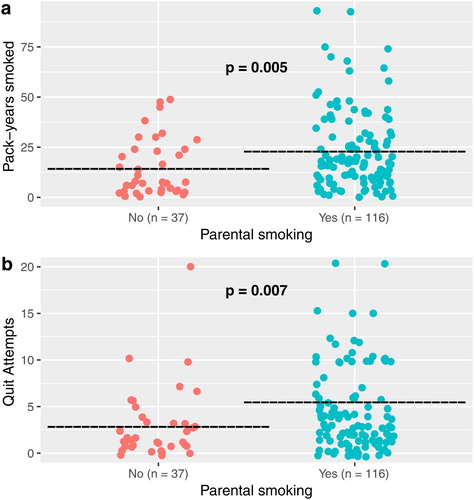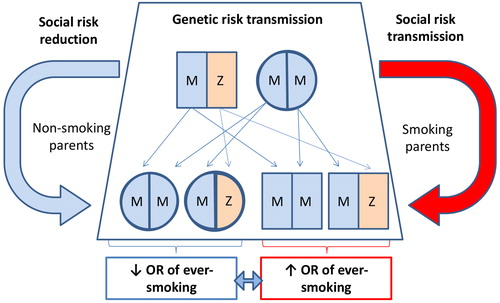Figures & data
Table 1. Characteristics of respondents, presented by AATD genotype.
Figure 1. Univariate analysis of the association of parental smoking with cumulative tobacco consumption (pack-years; top) and quit attempts (bottom) prior to successful cessation among former-smokers (n = 153). Parental smoking was associated with significantly greater tobacco consumption (+8.7 pack-year, p = 0.005) and quit attempts (+2.63 quit attempts, p = 0.007).

Table 2. Adjusted odds of ever-smoker status for demographic and social factors.
Table 3. Characteristics of ever-smoking respondents presented by former- vs. current-smokers.
Table 4. Adjusted odds of current-smoker (vs. former-smoker) status for patient factors.
Figure 2. Representation of the double-hit hypothesis for COPD risk in AATD families. A single AAT deficient parent (in this example one heterozygous MZ individual) is sufficient to pass on a deficient Z allele in 50% of children. This inheritance of MZ AATD is not associated with an increase in the risk of COPD without the addition of tobacco smoking. The presence of smoking at a parental level (red arrow) will increase the likelihood of smoking in progeny compared to those born to nonsmoking parents (blue arrow). With the addition of cigarette smoking, MZ progeny will have a significantly increased risk of COPD compared to smoking MM siblings.

Data availability
Data from this study will not be publicly available due to the terms of the patient consent to participation.
